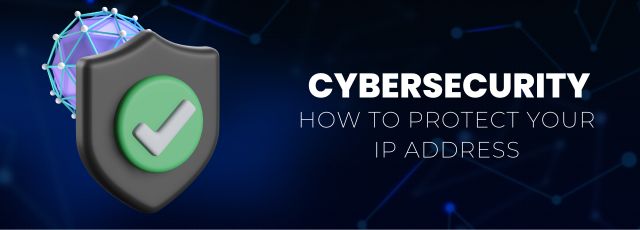It is crucial to start taking your cybersecurity seriously if you have yet to do so. Cybercrime is increasing day by day and, according to Statista, it is expected to skyrocket in the coming years. Its global cost is projected to rise from $8.44 trillion in 2022 to $23.84 trillion by 2027.
As your IP address is the front door to the internet, you must safeguard it as much as possible to prevent hackers from breaking it down. Hiding it from view will help you retain privacy and security online, decreasing your risk of a malicious cyberattack. Continue reading to learn how to protect your IP address.
Start by Checking Your IP Address
It is wise to check how safe your IP address is, as you can determine if you are likely to fall vulnerable to cybercrime. This IP checker can provide instant information on your IP address, location, and internet service provider, and will confirm if your online data is visible to third parties, such as hackers, governments, and snoopers. It will confirm how safe your IP address is – and return to the checker to monitor your cybersecurity after introducing tactics to safeguard your IP. It may provide peace of mind that you are less likely to fall vulnerable to cybercrime.
Use a Dependable VPN
A virtual private network (VPN), particularly a VPN for PC, is a great defense against cybercrime, as it will protect your IP while encrypting internet traffic. Once connected, you can relax in the knowledge that all your data is encrypted and delivered via a secure tunnel.
Shielding your IP address will boost your online anonymity and cybersecurity, ensuring your sensitive details never fall into unscrupulous hands. However, you must choose a VPN wisely, as they aren’t all created equal. For instance, you must pick a provider with strict no-logs principles and that doesn’t place restrictions on traffic and user bandwidth. Also, it must have many international server locations and should support multiple protocols to match security and speed requirements. Try to start hiding your IP address with a reliable free VPN.
Update Your Router and Firewall
Make no mistake, a talented cybercriminal will go to great lengths to access your network and data, and they will attempt to find vulnerabilities you don’t know you have. To stay safe online, you must update your router and firewall to receive the latest security patches and prevent a cyberattack.
Remember, cybercriminals are evolving their tactics and adopting new methods to find software vulnerabilities, and you must stay one step ahead. Make it your mission to routinely change your router password with a strong, impossible-to-guess letter, number, and symbol combination – and use a mix of upper and lowercase.
Have Caution Online
It goes without saying you must have caution online. Yet, cybercriminals make it easy for users to fall into their traps. For this reason, you must treat every email and social media message with suspicion. For example, always check the sender’s email address before clicking a backlink or downloading a file. By doing so, it will ensure you never open a malicious link designed to identify your IP address and gain access to your sensitive data. Remain safe online by only sharing your sensitive information with people or companies you trust and are certain are safe online.
Disable WebRtc ASAP
If you are unfamiliar with web real-time communication (WebRTC), it is the technology that sends real-time video, audio, and data communication between various web browsers and applications. Enabled WebRTC could leak your IP address, even if you have set up a VPN. Shield your IP by disabling WebRTC in your browser settings. Alternatively, install a browser extension to block leaks and prevent a cybercriminal from finding your IP address.
